Women's View, No. 6
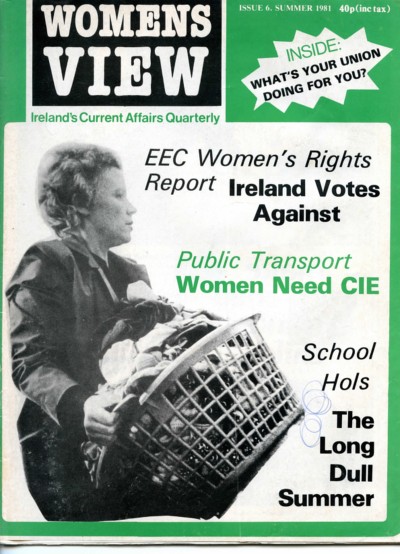
| Date: | 1981 |
|---|---|
| Organisation: | Sinn Féin The Workers' Party |
| Publication: | Women's View |
| Issue: | Number 6 Summer 1981 |
Contributors:
Info | Máirín de Burca, Sally Curran, Mary Diskin, Triona Dooney, Katy Gardner, Catherine Maguire, Therese Moriarty |
| Collection: | Abortion and reproductive rights |
| Type: | Publication Issue |
| View: | View Document |
| Discuss: | Comments on this document |
| Subjects: | General Election, 1981 |
Please note: The Irish Left Archive is provided as a non-commercial historical resource, open to all, and has reproduced this document as an accessible digital reference. Copyright remains with its original authors. If used on other sites, we would appreciate a link back and reference to The Irish Left Archive, in addition to the original creators. For re-publication, commercial, or other uses, please contact the original owners. If documents provided to The Irish Left Archive have been created for or added to other online archives, please inform us so sources can be credited.
Commentary From The Cedar Lounge Revolution
6th March 2023
This edition of Women’s View joins other issues in the Archive. The publication was:
Published quarterly by the National Women’s Committee of Sinn Féin the Workers’ Party.
Dating from 1981 it has a varied range of topics covered. The cover note that the state of Ireland voted against the EEC Women’s Rights Report, it also has a long piece on Public Transport, How Women Need CIE. Mairin De Burca examines the worth of the then contemporary women’s TDs. There’s the piece on ‘The Long Dull Summer: School hols, the working mother’s dilemma’. There’s a full page on news on issues relating to women from Northern Ireland. And there are other articles and pieces including a poem on marriage.
The piece by Mairin De Burca notes the election shows:
…that there is an independent women’s vote. That women are not bound any longer by the way in which their husbands voted and that they are not interested in Civil War politics. In the context of Irish women and their political maturity or the lack of it, this is an important step forward.
And she notes:
The minus aspects of the election are that all of the women are members of male-dominated political parties and that none of them have shown any courage in tackling their parties on issues of urgent importance to women. When there were seven women in the Dail not one of them staked her party membership against her principles on feminist issues (or indeed on any other issue) and although Eileen Lemass and Eileen Desmond – to take two of the strongest feminists among them – spoke strongly in private even they trooped obediently into the division lobby behind their male leaders when the Party whip was on.
And she concludes:
When male representatives show a serious interest in ending discrimination against women as a priority as well as an abiding dedication to the ending of partition or whatever, then it will be unnecessary to expect or ask of women deputies that they should put feminist demands at the top of their list. This is not to say by any meam that the rest of the list should be blank and the claim that it i, i, simply another anti-feminist smear.
The article on Public Transport is of particular interest and has the following:
WOMEN depend on public transport much more than men. For many female workers, housewives and mothers of young children the bus or train is the only way of getting to shops, schools, offices and factories. So women have a special interest in public transport -and a special reason for defending it.
THE service CIE provides is not adequate. But there is no point in blaming the bus crews. or complaining to the rest of the bus queue about faceless men in CIE management.
IF you have spent hours waiting in the rain for a 16 or 46a that never came the chances are the Government was to blame. For years successive Governments have refused to give CIE the money it needs to buy more and better buses and trains to open up new road and rail routes.
GOVERNMENTS have also refused to introduce a transport plan which would reduce traffic in the cities and so speed up the bus service. And CIE has not been allowed to compete in the profitable areas of transport – like road haulage -yet has been expected to run vital but uneconomic social services without losing money.
AND on top of this the Government has cut back CIE’s subsidy to £65 million at the same time it spent more that £1 million on chauffeur driven MP.rcedes for thirty Government Ministers!
NOW more than ever CIE is under attack. Private businessmen would like to run the profitable routes themselves and their friends in Fianna Fail and Fine Gael are anxious to help them. If this happens many women, especially in rural areas, will find themselves stranded simply because there is no money to be made out of giving them the means to travel.
There’s also a piece on the SFWP Womens Committee which considers Fine Gael, Labour and Fianna Fáil and argues;
In contrast to the record of these parties, SFWP have always promoted radical change in all spheres for women and will shortly publish a pamphlet detailing the major innovations required to improve the quality of life for Irish women.
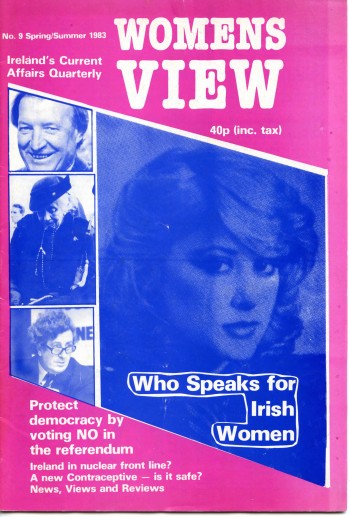
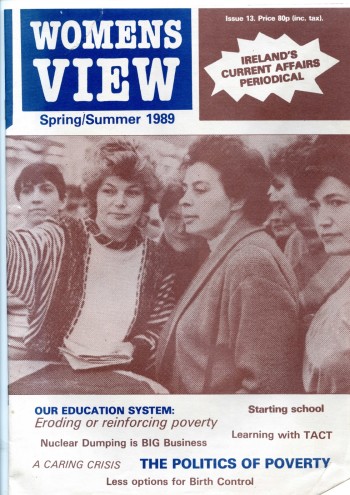
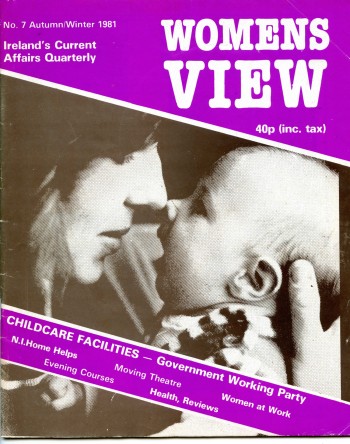
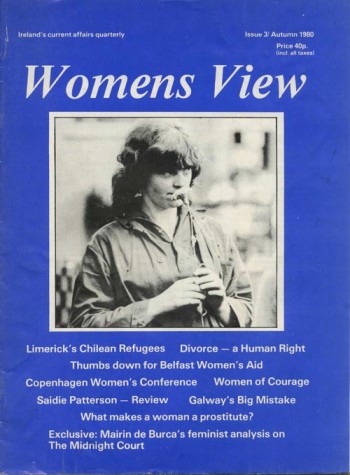
Comments
You can also join the discussion on The Cedar Lounge Revolution
No Comments yet.
Add a Comment
Comments can be formatted in Markdown format . Use the toolbar to apply the correct syntax to your comment. The basic formats are:
**Bold text**
Bold text
_Italic text_
Italic text
[A link](http://www.example.com)
A link